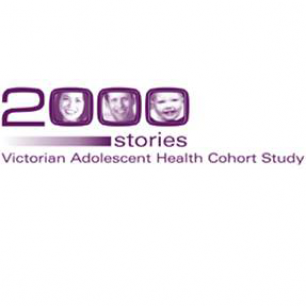
2000 stories is a landmark longitudinal study of adolescent health and development. A group of 2,000 Year 9 Victorian students was selected in 1992 and have been regularly surveyed through secondary school and into adulthood. This study is improving our understanding of adults and how adolescent experiences, health and lifestyles may affect physical and emotional health in adulthood.
Currently, the study is focused on two research areas:
- The collection of data for a 10th wave follow up (funded by NHMRC).
- Analyses of existing data with a focus on alcohol (funded by Rotary Health).
2000 stories is led by Professor George Patton of the Murdoch Children's Research Institute. NDARC staff are among the project's lead research team.
Professor George Patton
Murdoch Childrens Research Institute
Professor Stephanie Brown
Murdoch Childrens Research Institute
Professor John Carlin
Murdoch Childrens Research Institute
Dr Carolyn Coffey
Murdoch Childrens Research Institute
Professor Wayne Hall
University of Queensland
Professor Jeremy Oats
University of Melbourne
A/Professor Craig Olsson
Deakin University
This project aims to collect information on adolescent health and behaviour to improve the health of future generations by influencing policy and informing prevention programs.
For detailed project information, please contact the project leaders at the Murdoch Children's Research Institute.
A group of 2,000 Year 9 Victorian students was selected in 1992. They completed 6 interviews at school age (from Years 9 - 12), and 3 interviews in young adulthood (aged around 21, 24 and 29). The study has maintained a high retention rate for over 20 years, with over 75% of original study participants completing the most recent follow up interview. NDARC has been involved in analyses related to participants' mental health and substance use.
For papers authored by NDARC staff, please see further down this page.
Presentations:
Degenhardt, L., O’Loughlin, C., Swift, W. (presenter), Romaniuk, H., Coffey, C., Hall, W. & Patton, G. (2013). The natural history of binge drinking from adolescence to young adulthood. Paper presented at the 14th Congress of the International Federation of Psychiatric Epidemiology, June 5-8, Leipzig, Germany.
Degenhardt, L., O’Loughlin, C., Swift, W. (presenter), Romaniuk, H., Coffey, C., Hall, W. & Patton, G. (2013). The natural history of binge drinking from adolescence to young adulthood. Paper presented at the NDARC Annual Symposium, September 4, Sydney.
Degenhardt, L., (2013). The persistence of adolescent binge drinking into adulthood: Findings from a 15-year prospective cohort study. Poster presented at 75th Meeting of theCollege on Problems of Drug Dependence, San Diego, California, June 2013.
Swift, W., Slade, T., Degenhardt, L., Coffey, C., Carragher, N. & Patton, G. (2013). Adolescent predictors of alcohol use disorders in young adults. Paper presented at the 14th Congress of the International Federation of Psychiatric Epidemiology, June 5-8, Leipzig, Germany.
Swift, W., Slade, T., Degenhardt, L., Coffey, C., Carragher, N. & Patton, G. (2013). Adolescent predictors of alcohol use disorders in young adults. Poster presented at the NDARC Annual Symposium, September 4, Sydney.
The first six surveys of this project created one of the most comprehensive pictures of adolescent development to date. Investigators looked at many aspects of teenage health and behaviour, including mental health, personality and behaviour, school, family, and drug and alcohol use. This information has been used to improve the health of future generations by influencing policy and informing prevention programs. More recently, investigators have focussed on how teenage experiences, health and lifestyles may affect physical and emotional health in adulthood. The findings have helped bring global attention to the important role of adolescence in shaping future health.



